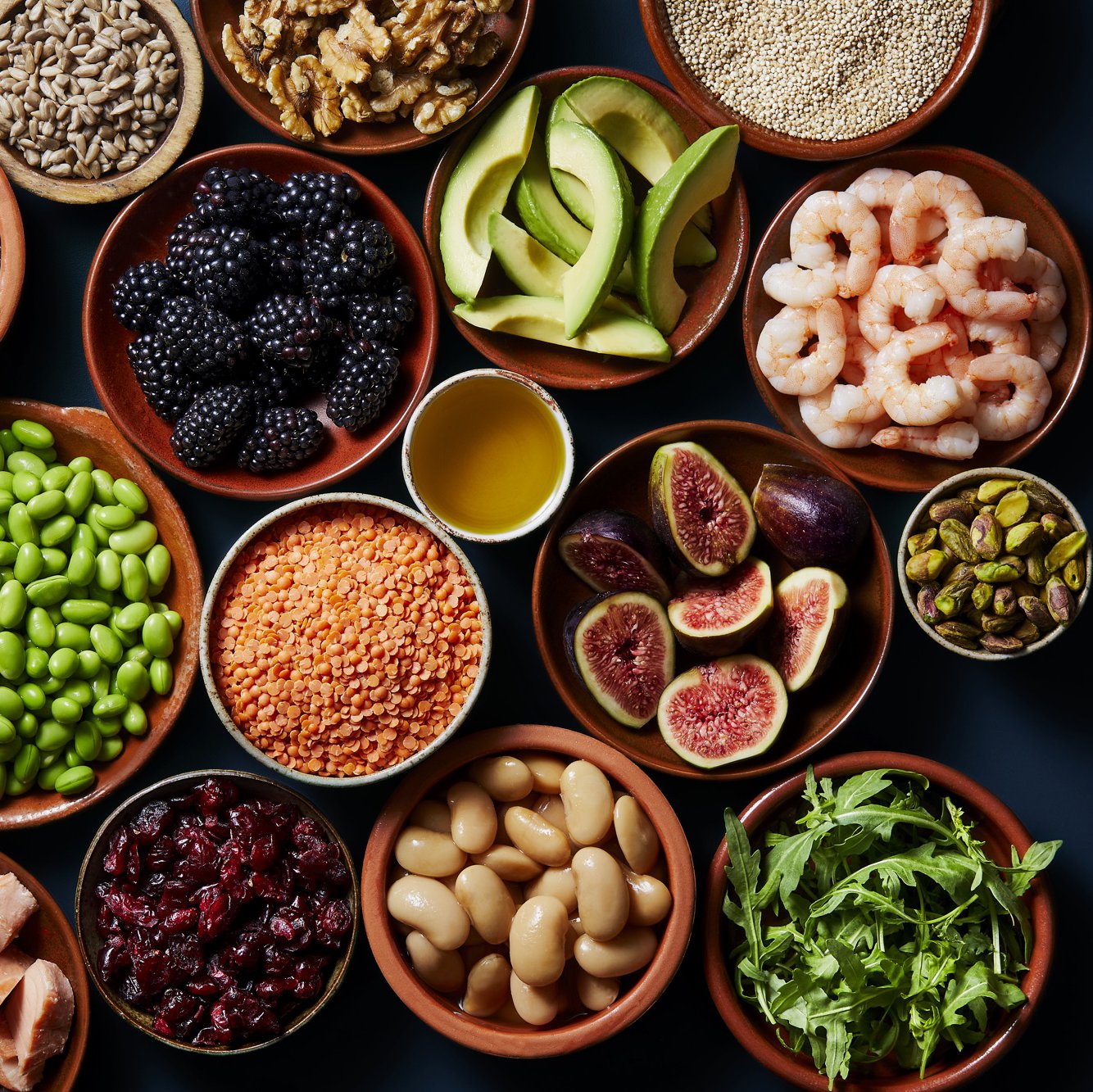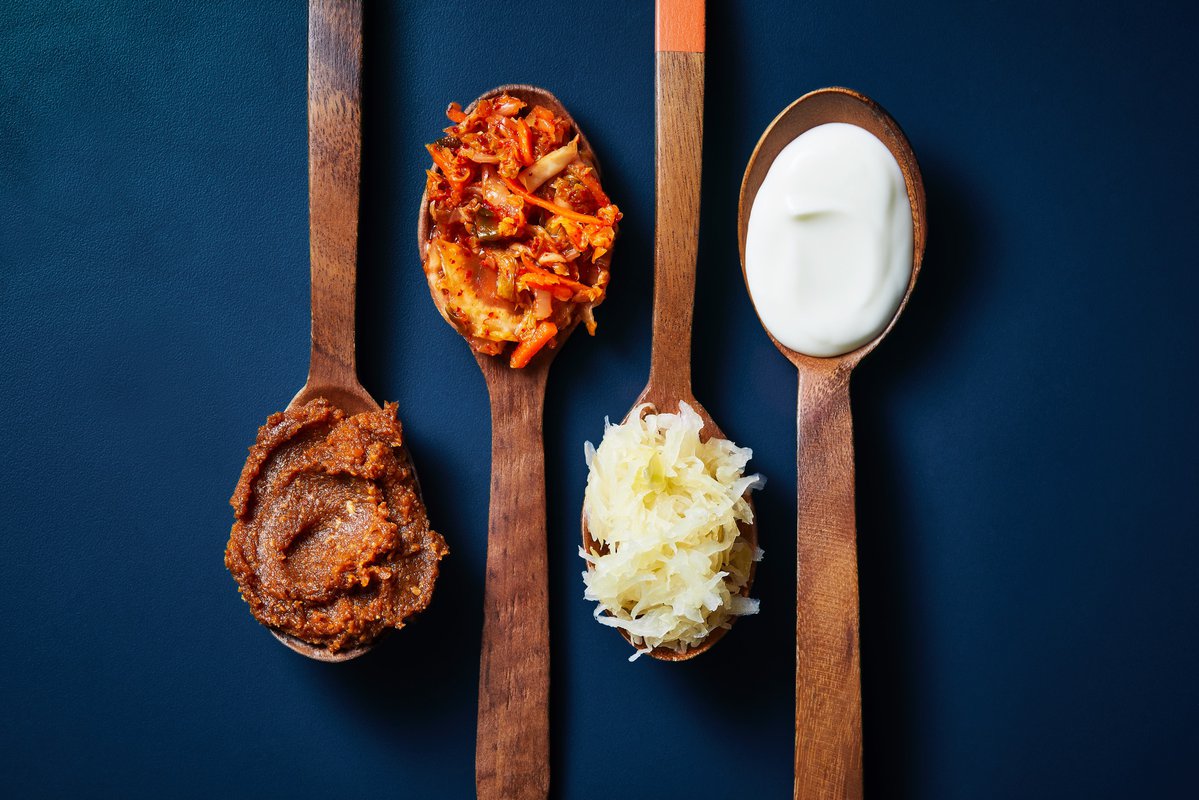One small change: eat well for the menopause

There are some lucky women who sail through menopause, but for more than 80% it brings unwelcome symptoms – from hot flushes and insomnia to brain fog and joint pain – which can be debilitating and life-changing. “The changes in hormones that happen around the menopause can impact your bone health, heart health and brain health, as well as your mood and weight,” says Dr Linia Patel, a registered dietitian and author of Food For Menopause. When oestrogen levels fall during menopause, the protective effects of the hormone are lost and the risk of cardiovascular disease, osteoporosis, type 2 diabetes and dementia rises. The good news is that in recent years people have started to talk much more openly about managing this tricky time – both the menopause itself which officially begins when you haven’t had a period for one year and the transitional stage leading up to it, known as perimenopause, when many women start experiencing symptoms. And while there are a range of approaches you can take, including hormone replacement therapy (HRT), making small changes to your diet can help manage symptoms and improve your long-term health outlook.
A smart starting point is a Mediterranean-style diet, based around fruit, vegetables, pulses, wholegrains, olive oil, nuts, seeds and fish. "These foods are anti-inflammatory, helping counter the increased inflammation that occurs in the body during perimenopause and menopause," says Linia. A review of studies on the effects of the Mediterranean diet on menopausal health found that it can improve symptoms such as hot flushes, as well as cardiovascular risk factors such as high blood pressure and cholesterol. If adhered to long-term, it can also reduce heart disease risk, improve bone mineral density, prevent cognitive decline and reduce the risk of breast cancer.
Plants are certainly a powerful weapon. One of the largest studies to date to investigate diet and menopause, ZOE Predict, found that those consuming a diet rich in plant-based foods were 30 per cent less likely to report symptoms such as hot flushes and sleep disturbances. And a study published in the journal Menopause found that women who ate a vegan diet and included half a cup (about 86g) per day of cooked soya beans for 12 weeks experienced 88 per cent fewer hot flushes than those who stuck to their usual diet. It's worth trying tofu, tempeh, miso, edamame, and soya drinks too. All contain natural chemicals called phytoestrogens that have mild oestrogen-like effects on the body and can help ease symptoms in some women. Caffeine and alcohol, on the other hand, can make hot flushes worse, so opt for caffeine-free drinks and reduce alcohol to a minimum.
Eating to nourish your gut bacteria is also paramount. A recent review published in the International Journal of Women's Health noted a decrease in gut microbiome diversity after menopause or in women with low oestrogen levels. The ZOE Predict study found that postmenopausal women had increased levels of gut bacteria associated with inflammation and obesity. You can help mitigate the changes by (again) eating more plants. which means you'll take in more fibre. Linia suggests aiming for 30 different plant-based foods a week. Include berries, buts and seeds – these contain polyphenols which help 'good' bacteria thrive. Fermented foods, such as live natural yoghurt, kefir and kimchi, also have a positive effect on your hut microbiome and have been linked to a reduced risk of cardiovascular disease and type 2 diabetes. As ever, keeping added sugars, artificial sweeteners and ultra-processed foods to a minimum will help maintain microbial diversity.
Eating more healthy fats – nuts, seeds, oily fish, avocado and olive oil – can be good; there is evidence that omega-3 fats may nourish your gut microbiome. Omega 3s help increase 'good' HDL (high density lipoprotein) cholesterol, too, helping to reduce the risk of heart disease.
As well as other lifestyle factors, increasing your exercise (particularly strength-building) and upping your protein intake may also help. Studies have found that consuming more protein than the recommended intake helps prevent age-related muscle loss. Linia suggests having 20-30g protein per meal, equivalent to a small chicken breast or 200g Greek-style plain yoghurt.
Menopause can be a challenging stage, but it's always worth seeing if a few adjustments can make a positive difference.

A helping hand
Some supplements may help manage symptoms (but always talk to your doctor first).
Vitamin D: Experts recommend 10mcg of a vitamin D supplement daily throughout the year, but especially in the autumn and winter months. Vitamin D helps your body to absorb and use calcium, important for keeping bones strong.
Magnesium: This mineral plays a role in stress management, regulating mood and sleep. Supplements may improve sleep and reduce anxiety.
Omega 3s: These have anti-inflammatory properties. Supplements may help reduce hot flushes and night sweats. Dr Linia Patel recommends 1g of EPA and DHA daily.
Herbal supplements: Remedies such as red clover contain phytoestrogens that can act in a similar way to oestrogen, while black cohosh is claimed to reduce hot flushes. There is little evidence these are effective, however.
High-protein diets are a hot topic – but how do you know if you need to eat more?”
